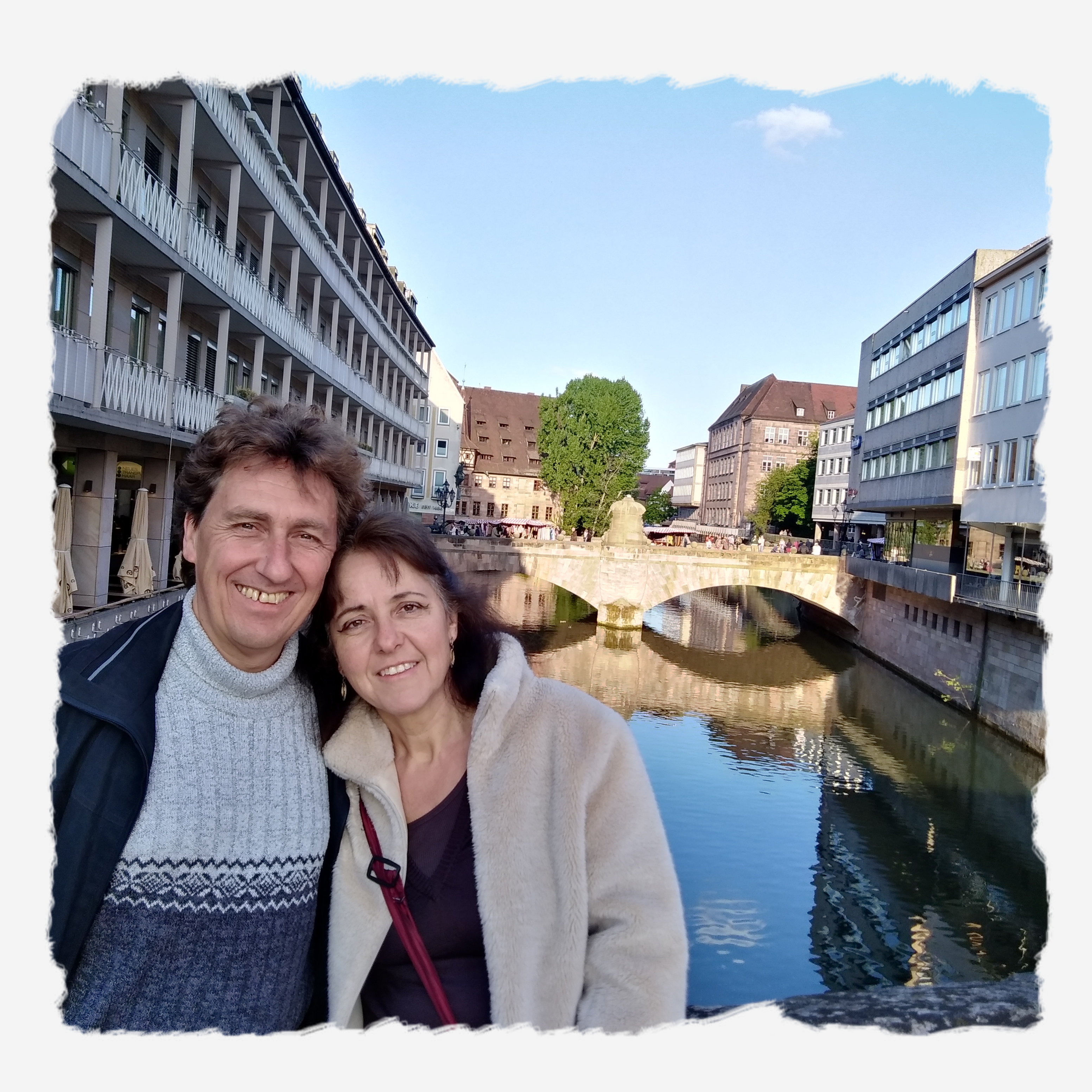We take only 5 couples with us
Trust is the foundation of any strong relationship. Without it, couples can find themselves in a cycle of doubt, insecurity, and misunderstanding.
Trust is the foundation of any strong relationship. Without it, couples can find themselves in a cycle of doubt, insecurity, and misunderstanding. Whether you're navigating a new relationship or hoping to strengthen a long-term partnership, understanding and building trust is essential. Fortunately, there are various couples therapy exercises that can help foster trust and deepen your connection.
Trust is more than just being honest; it's about reliability, safety, and mutual respect. It's knowing that your partner has your back, values your feelings, and will be there when you need them. Without trust, relationships can become strained, leading to emotional distance and conflict.
Emotional safety is a key element of trust. It means being able to express feelings, thoughts, and concerns without fear of judgment or retribution. In a trusting relationship, both partners feel secure enough to be vulnerable, which strengthens the emotional bond.
Reliability involves being dependable and consistent in actions and words. When partners can rely on each other, it builds a stable foundation for the relationship. Consistency reinforces the belief that each partner will act in ways that are predictable and supportive.
Mutual respect is crucial for trust to flourish. It involves valuing each other's opinions, boundaries, and individuality. When respect is present, partners are more likely to honor commitments and support each other's growth, further solidifying trust.
Open communication is essential for maintaining trust. It allows partners to address issues before they escalate, share their innermost thoughts, and navigate misunderstandings. Open dialogue fosters an environment where both partners feel heard and understood.
Having shared values and goals can strengthen trust as it aligns partners on a common path. When both individuals are committed to similar aspirations and principles, it creates a unified vision for the future, enhancing the trust between them.
One of the most powerful ways to build trust is through shared experiences, especially those that challenge you as a couple. Engaging in new activities or adventures can create opportunities for couples to rely on each other, communicate effectively, and support one another.
Whether it's a hiking trip, kayaking, or even a simple camping trip, outdoor activities require teamwork and communication. Facing the elements together can be a metaphor for overcoming life's challenges. It encourages partners to depend on each other and celebrate achievements together.
Outdoor adventures often present physical and mental challenges that require problem-solving and teamwork. These experiences can mirror life's unexpected hurdles, teaching couples how to tackle difficulties together and reinforcing their reliance on each other.
Engaging in physical activities outdoors not only builds trust but also resilience. Couples learn to adapt to changing situations, which strengthens their ability to cope with stress and uncertainty in their relationship.
Achieving a shared goal, like reaching the peak of a mountain or completing a challenging route, can be incredibly rewarding. Celebrating these successes together enhances the sense of accomplishment and unity, boosting trust.
Taking a class together, such as dancing, cooking, or painting, can be a fun way to bond and build trust. Learning something new requires vulnerability and patience, allowing couples to support and encourage one another through mistakes and successes.
Learning a new skill involves stepping out of your comfort zone, which can be intimidating. By navigating this vulnerability together, couples build a deeper understanding and appreciation for each other’s strengths and weaknesses.
Providing encouragement and support during the learning process is vital. This positive reinforcement builds confidence and trust, showing that each partner is invested in the other’s growth and happiness.
Acknowledging and celebrating progress, no matter how small, strengthens the connection between partners. It reinforces the idea that they are a team, working together towards a common goal.
Traveling to new destinations can be a thrilling way to build trust. It involves planning, decision-making, and adapting to new environments, all of which require collaboration and understanding.
Exploring unfamiliar places requires couples to rely on each other for navigation and decision-making. This shared reliance fosters trust as partners learn to depend on one another in new and challenging situations.
Creating shared memories through travel strengthens the bond between partners. These experiences provide a reservoir of positive moments to draw upon during tougher times, reinforcing trust and commitment.
Travel often involves unexpected challenges, such as missed flights or language barriers. Solving these problems together enhances trust by demonstrating that both partners can handle adversity as a team.

Facing challenges as a couple doesn't always mean seeking out adventure. Sometimes, the challenges we face in everyday life can serve as a catalyst for building trust.
Discussing finances can be daunting, but it's a critical aspect of any long-term partnership. Sit down together and create a budget, discuss financial goals, and ensure that both partners have a say in financial decisions. This transparency fosters trust and mutual respect.
Creating a budget requires open dialogue about income, expenses, and financial priorities. This process encourages transparency and collaboration, key components of trust.
Establishing shared financial goals, such as saving for a home or planning for retirement, aligns couples on a common path. Working towards these goals together strengthens trust and commitment.
Disagreements about money can be a major source of tension. Learning to navigate these conflicts with empathy and understanding enhances trust, as partners learn to respect each other's perspectives and find common ground.
Confronting difficult topics or past grievances with openness and honesty can strengthen trust. It requires active listening, empathy, and a willingness to understand your partner's perspective. Couples can practice these skills in therapy or through guided exercises.
Active listening involves giving full attention to your partner, acknowledging their feelings, and responding thoughtfully. This practice fosters understanding and trust, as it shows that each partner values the other's perspective.
Approaching difficult conversations with empathy and compassion is crucial. It requires understanding your partner's emotions and validating their experiences, which strengthens the emotional connection and trust.
The goal of difficult conversations should be resolution and understanding, rather than winning an argument. By focusing on finding solutions, couples reinforce trust and demonstrate their commitment to the relationship.
Major life changes, such as moving, changing jobs, or starting a family, can be challenging. Successfully navigating these transitions requires communication, support, and trust.
During life transitions, offering emotional and practical support is essential. This support builds trust by showing that each partner is committed to the other's well-being and success.
Clearly communicating needs and expectations during transitions helps prevent misunderstandings. Open dialogue reinforces trust and ensures that both partners feel heard and understood.
Life transitions often require adaptability and flexibility. Successfully navigating these changes together strengthens the relationship and builds a foundation of trust.
Therapists often recommend specific exercises designed to enhance trust. These activities focus on improving communication, understanding, and emotional connection.
A classic exercise, the trust fall involves one partner falling backward into the arms of the other. It's a simple yet powerful demonstration of trust and reliance. While this exercise is physical, it serves as a metaphor for emotional trust within the relationship.
The trust fall is a physical manifestation of trust, requiring partners to rely on each other's strength and presence. This exercise reinforces the idea that each partner is there to catch and support the other.
Participating in a trust fall can be intimidating, as it involves letting go of control. Overcoming this fear together builds trust by demonstrating that both partners are willing to be vulnerable.
The physical act of a trust fall serves as a metaphor for emotional trust, highlighting the importance of relying on each other in all aspects of the relationship.
Set aside time each day to discuss moments where trust was either strengthened or challenged. Use this time to address concerns, express gratitude, and reaffirm your commitment to building a trusting relationship.
Daily check-ins provide an opportunity to identify and discuss moments that impacted trust. This reflection helps partners understand what actions build or challenge trust in their relationship.
Expressing gratitude during check-ins reinforces positive behavior and strengthens trust. Acknowledging each other's efforts creates a supportive environment where trust can flourish.
Addressing concerns promptly prevents misunderstandings from escalating. By discussing issues openly, couples reinforce trust and demonstrate their commitment to resolving conflicts.
Spend time sharing personal stories from your past. This exercise allows partners to understand each other's backgrounds, values, and experiences. It fosters empathy and deepens the emotional connection between partners.
Sharing personal stories provides insight into each partner's background and experiences. This understanding fosters empathy and appreciation, strengthening the emotional bond and trust.
Discussing personal stories often reveals underlying values and beliefs. Recognizing and respecting these values enhances trust by showing that each partner values the other's individuality.
Personal storytelling deepens the emotional connection between partners. This connection fosters trust by creating a sense of intimacy and understanding.
One partner wears a blindfold while the other guides them through a series of tasks or an obstacle course. This exercise emphasizes communication and trust, requiring the blindfolded partner to rely entirely on their guide.
The blindfold challenge requires clear and effective communication. This exercise strengthens trust by demonstrating the importance of listening and understanding each other's cues.
The blindfolded partner must rely entirely on their guide, reinforcing the idea of trust and dependence in the relationship. Successfully completing the challenge builds confidence in each other's abilities.
Guiding a partner through the blindfold challenge involves trusting one's intuition and instincts. This practice enhances trust by demonstrating that partners can rely on each other's judgment.
Incorporating trust-building exercises into your routine can have lasting benefits. Here are some practical activities to consider:
Schedule a weekly meeting to discuss your relationship. Use this time to talk about what's working well, address concerns, and set goals for the future. Regular check-ins demonstrate a commitment to the relationship and reinforce trust.
Weekly meetings provide an opportunity to review progress towards relationship goals. Celebrating achievements reinforces trust and commitment, while addressing challenges ensures that both partners are aligned.
Setting new goals during meetings keeps the relationship dynamic and forward-focused. This practice builds trust by demonstrating that both partners are invested in the future of their relationship.
Developing action plans for achieving goals ensures that both partners are accountable. This accountability fosters trust by showing that each partner is committed to the relationship's success.
Take turns expressing appreciation for one another. Acknowledging the positive aspects of your partner and the relationship can build trust and foster a supportive environment.
The appreciation exercise encourages partners to focus on positive aspects of the relationship. This positivity enhances trust by creating a supportive and nurturing environment.
Regularly expressing appreciation strengthens emotional resilience, enabling partners to navigate challenges with confidence. This resilience reinforces trust and commitment.
Expressing appreciation reinforces the idea of mutual support in the relationship. Acknowledging each other's efforts builds trust by showing that both partners value and support one another.
Setting and working toward shared goals can unite couples and build trust. Whether it's planning a trip, saving for a major purchase, or supporting each other's personal growth, working together toward a common objective reinforces trust.
Setting goals as a couple involves aligning priorities and aspirations. This alignment strengthens trust by demonstrating that both partners are working towards a shared vision.
Celebrating milestones along the way reinforces trust and commitment. Acknowledging progress towards goals fosters a sense of accomplishment and unity.
Supporting each other's personal growth through goal setting builds trust by showing that both partners are invested in each other's development and happiness.
Building trust in a relationship is an ongoing process that requires effort, communication, and understanding. By engaging in these couples therapy exercises and facing challenges together, partners can strengthen their bond and create a foundation of trust that supports a healthy, fulfilling relationship.
Trust isn't built overnight, but with patience and dedication, couples can cultivate a trusting partnership that withstands the test of time. Whether through adventure, shared challenges, or therapeutic exercises, the journey to building trust is one that enriches both individuals and the relationship as a whole.
The reward of building trust is a deep, meaningful connection that enhances every aspect of the relationship. A trusting partnership provides emotional security, open communication, and a sense of unity, allowing couples to navigate life's challenges with confidence and resilience.
A commitment to growth is essential for maintaining trust. By continually engaging in trust-building activities and addressing challenges openly, couples can ensure that their relationship remains strong and fulfilling, fostering a lifetime of love and partnership.
Make your appointment now
We take only 5 couples with us
Reserve your spot now!
Over the years, the infatuation often gives way to living side by side as partners. In everyday life with children, a career and different leisure activities, you lose the connection.


Susana and Markus Kessler have been in a happy relationship for more than 25 years. To ensure that their partnership continues to grow, they have repeatedly attended coaching and training sessions on all aspects of their relationship, including communication, money management and parenting.
They have built up several businesses and have become financially free as a result. They have also attended countless coaching and training sessions for their business on sales, marketing, social media, business development and investing.
They have been trained coaches since 2015 and are passionate about passing on their knowledge. Their coaching approach is practical, solution-oriented and individually tailored to the needs of their clients. They offer comprehensive support in the areas of personal development, relationship building and maintenance, financial education and entrepreneurial growth.
Susana and Markus offer various coaching formats to ensure maximum flexibility for their clients. These include:
With their many years of experience and in-depth knowledge, Susana and Markus Kessler help people to strengthen their relationships and make the most of their lives and opportunities.

Our knowledge comes from 25 years of relationship experience as well as training and further education with the world's best in their field, including the NLP Academy Switzerland, J.T. Foxx, T. Harv Eker, Landmark Wordwide, John Kehoe, Maja Storch and many more.

Every partnership is different. We recognize your individual personalities and work with your own resources to support you perfectly on your path to the perfect partnership.

Anyone who talks about their relationship deserves absolute discretion and an atmosphere of trust. That's why we offer you an empathic environment in which you feel safe and secure and can speak openly with each other.